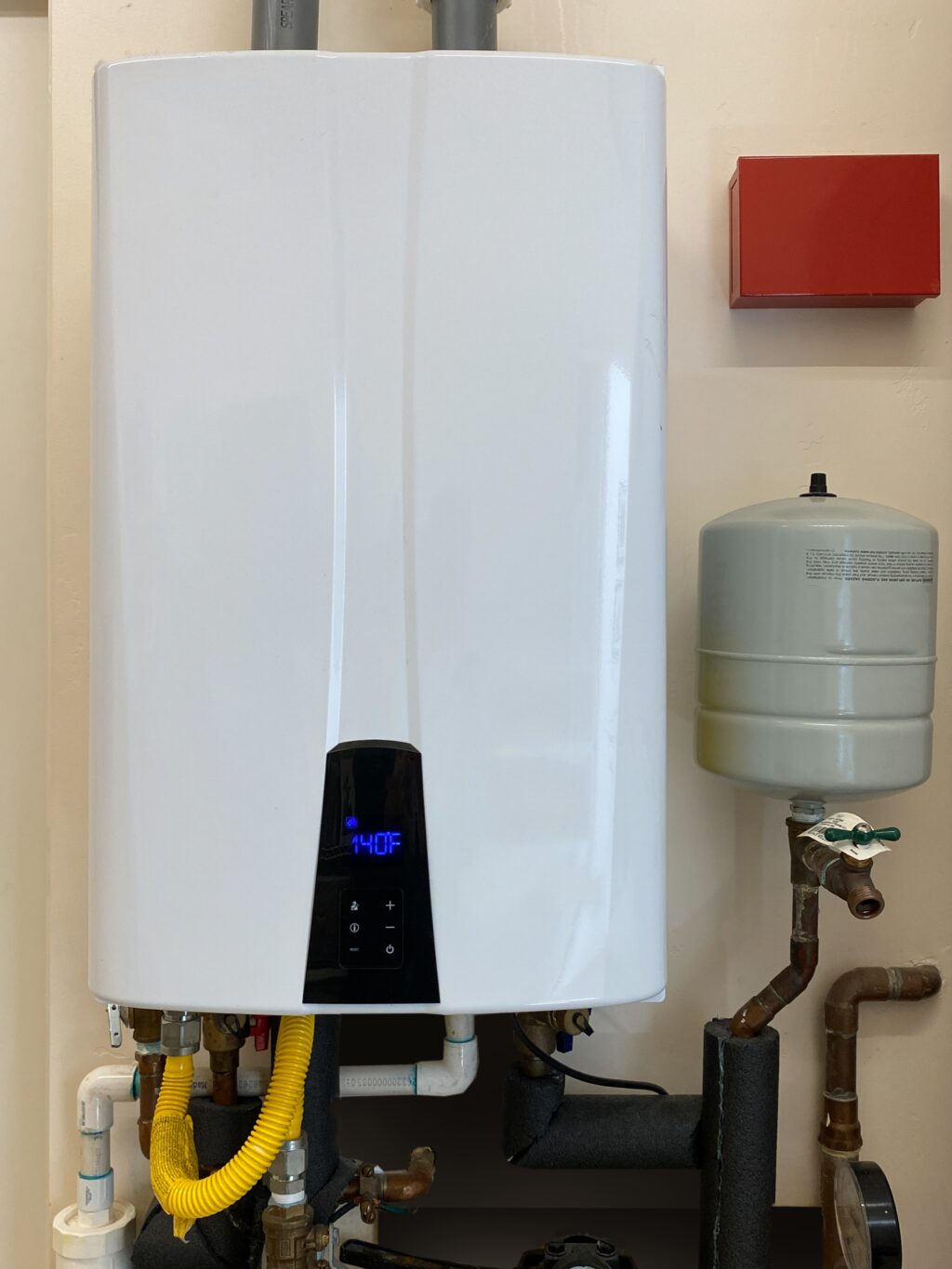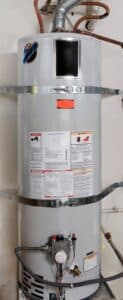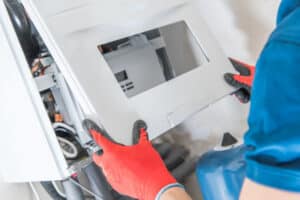
Water Heater Efficiency: Choosing the Best Model for Your Kennedale Home
When it comes to enhancing the comfort and efficiency of your Kennedale home, selecting the right water heater is crucial. Water heater efficiency can significantly impact your utility bills and environmental footprint. By choosing a model that aligns with the latest efficiency standards, you not only save money but also contribute to a healthier planet. It’s essential to understand the various types of water heaters available and how their efficiency can affect your home.
Modern water heaters are designed to meet diverse household needs while maximizing water heater efficiency. Whether you opt for a traditional tank model or a contemporary tankless unit, the efficiency of your water heater plays a pivotal role in its performance. High-efficiency models are engineered to use less energy while providing the same level of warmth and comfort in your water supply. This means less wasted energy and more savings on your energy bills.
For residents of Waxahachie and surrounding areas, investing in an energy-efficient water heater is a smart decision. Not only does it reduce the cost of heating water, but it also lessens the strain on local power grids and minimizes environmental impact. Choosing the right model involves considering factors such as size, fuel type, and energy ratings, which all contribute to the overall efficiency of the unit.
As you consider upgrading or replacing your water heater, remember that the initial investment in a high-efficiency model can lead to substantial long-term savings. With the right information and guidance, you can select a water heater that offers optimal performance and efficiency, tailored to the needs of your household. This introduction to water heater efficiency is just the beginning of making an informed choice that benefits both your home and the environment.
Understanding Water Heater Efficiency
Understanding water heater efficiency is vital for homeowners in Kennedale and beyond. The efficiency of a water heater is measured by its Energy Factor (EF) rating, which indicates how well a unit converts energy into hot water. A higher EF rating signifies a more efficient model, leading to lower utility bills and reduced environmental impact. It’s essential to check this rating when comparing different models, as it directly affects your home’s energy consumption and costs.
In Waxahachie, where energy costs can fluctuate, investing in a high-efficiency water heater can be particularly beneficial. These water heaters are designed to minimize standby losses – the heat lost from water stored in a tank. By choosing a model with good insulation and advanced heating technology, you can ensure more of the energy is used to heat the water, rather than escaping unused. This not only conserves energy but also optimizes the unit’s performance.
Tankless water heaters are an excellent example of water heater efficiency. Unlike traditional tank models, tankless units heat water directly without the need for a storage tank. This on-demand heating means you’re only using energy when hot water is needed, avoiding the energy waste associated with heating a full tank. For households with less consistent hot water needs, this can result in significant energy savings and a lower carbon footprint.
Lastly, it’s important to consider the longevity and maintenance of your water heater when assessing its efficiency. Efficient models not only use less energy but are often built to higher standards, which can extend their lifespan. Regular maintenance also plays a crucial role in sustaining the efficiency of your water heater. By understanding and managing these aspects, Kennedale homeowners can enjoy sustained performance and efficiency, ensuring their water heater remains a cost-effective part of their home for years to come.

Types of Water Heaters Available
When exploring the various types of water heaters available, it’s essential to consider how each model aligns with your goals for water heater efficiency. In Kennedale, homeowners have several options, ranging from conventional tank water heaters to innovative tankless models. Each type offers distinct advantages in terms of energy use and overall efficiency, making it crucial to weigh these factors against your household’s specific needs.
Conventional tank water heaters are widely used due to their simplicity and reliability. They store a large volume of hot water, ensuring availability when needed. However, they can be less efficient than other types due to standby heat loss. Insulated tanks can mitigate some of these losses, enhancing water heater efficiency and making them a more viable option for many homes.
On the other hand, tankless water heaters provide hot water on demand, eliminating the need for a storage tank and significantly reducing energy waste. This feature makes them highly efficient and can lead to substantial savings on energy bills, especially in areas like Waxahachie where energy costs can vary. These units are ideal for households with fluctuating hot water needs, as they only heat water when it is required.
Hybrid water heaters, another efficient option, combine the technology of conventional tank heaters with heat pump systems. These units use the heat from the air or ground to heat water, drastically reducing the amount of electricity or gas needed. This makes them one of the most energy-efficient models available, aligning with the growing demand for sustainable and cost-effective home appliances. Each type of water heater offers unique benefits, and understanding these can help you choose the best model for enhancing water heater efficiency in your home.
Key Features That Enhance Water Heater Efficiency
When considering the key features that enhance water heater efficiency, it’s important to focus on technology that minimizes energy waste. Innovations such as automated thermostats play a crucial role in maintaining the optimal temperature, ensuring that the system uses energy only when necessary. These smart thermostats adjust the water temperature based on usage patterns, which can significantly reduce unnecessary heating and cooling cycles. This feature is particularly beneficial in Kennedale, where energy efficiency is a growing priority among homeowners.
Another significant feature is the incorporation of high-quality insulation materials in water heaters. Proper insulation reduces the amount of heat lost during the water heating process, thereby enhancing the overall efficiency of the system. Models equipped with advanced insulation materials, like foam or fiberglass, can maintain water temperature for longer periods without additional energy input. This not only conserves energy but also ensures that residents in Waxahachie enjoy hot water when they need it, without the wait or waste.
For those looking to optimize water heater efficiency, the installation of heat traps is also advisable. Heat traps are designed to prevent heat from escaping through the water inlet and outlet pipes, which is a common issue in less efficient models. By keeping the heat contained within the system, these devices ensure that more energy is utilized for heating water rather than being lost to the surrounding environment. This mechanism is simple yet effective in boosting the efficiency of both tank and tankless water heaters.
Lastly, the use of corrosion-resistant materials in water heaters contributes significantly to their efficiency and longevity. Tanks that resist corrosion do not require frequent replacements and maintain their efficiency over a longer period. This durability ensures that the energy used to heat the water is effectively converted into hot water, without being compromised by damage to the tank. Homeowners should consider these features when selecting a water heater, as they contribute to both the sustainability and cost-effectiveness of their home heating systems.
How to Evaluate Your Home’s Hot Water Needs
Evaluating your home’s hot water needs is essential before selecting a water heater. This assessment ensures that the model you choose aligns with your household’s usage patterns, optimizing water heater efficiency and minimizing waste. Start by considering the size of your home and the number of occupants in Kennedale. Larger families or homes with multiple bathrooms will likely require a water heater with a higher capacity to meet the demand without straining the system.
Another critical factor is the peak hot water usage in your household. Observe times when the demand for hot water is highest, such as morning routines or evening baths. This will help you understand whether a tankless water heater, which provides hot water on demand, or a traditional tank model, better suits your needs. Ensuring the water heater’s capacity matches your peak demand enhances efficiency and can lead to significant savings on energy bills.
Additionally, consider the different water usage habits within your home. Certain appliances, like dishwashers and washing machines, also require hot water and can affect your overall consumption. In Waxahachie, where energy costs can fluctuate, choosing a water heater that can efficiently meet these varied needs without excessive energy consumption is crucial. This tailored approach not only improves water heater efficiency but also adapts to the unique lifestyle of your household.
Lastly, think about the future of your household. If you plan on expanding your family or if children are moving out, these factors will influence your hot water needs. Opting for a scalable solution, such as a modular tankless system, might provide the flexibility you need. By accurately assessing and anticipating these factors, you can select a water heater that offers optimal performance and efficiency, ensuring it remains a cost-effective and environmentally friendly feature in your home.
Comparing Energy Sources for Water Heaters
Choosing the right energy source for your water heater is crucial in optimizing water heater efficiency. In Kennedale, homeowners have several options, including electricity, natural gas, propane, and solar energy. Each source has its advantages and impacts on both the environment and your utility bills. Electric water heaters are widely available and easy to install, making them a popular choice for many. However, they often have higher operational costs compared to gas water heaters, which are praised for their efficiency and lower running costs.
Natural gas water heaters are another efficient option, especially in areas like Waxahachie where gas may be more economically priced. These units heat water quickly and are generally more cost-effective over time than their electric counterparts. Propane is an alternative for areas where natural gas isn’t available. It offers similar benefits to natural gas but requires storage for the fuel, which can be a drawback for some homeowners. Both gas and propane water heaters tend to have higher initial costs but provide savings in the long term due to their efficiency.
Solar water heaters represent the pinnacle of water heater efficiency by harnessing renewable energy to heat water. Although the upfront cost is higher, the reduction in energy bills can be substantial, making it an enticing option for environmentally conscious homeowners. Solar heaters are particularly effective in sunny locales, where they can operate at peak efficiency, significantly reducing reliance on traditional energy sources. This not only lowers energy costs but also minimizes the environmental impact of heating water.
When comparing these energy sources, consider both the immediate and long-term economic impacts, as well as the environmental implications. Each source has its merits and limitations, and the right choice depends on individual circumstances including local energy costs, availability, and personal preferences for sustainability. By carefully selecting the energy source for your water heater, you can enhance water heater efficiency, reduce environmental impact, and achieve cost savings, aligning with modern energy standards and personal values.

Installation Considerations for Maximum Efficiency
Proper installation is paramount to maximizing water heater efficiency in your Kennedale home. A water heater that is incorrectly installed may not operate at its optimal efficiency, leading to increased energy consumption and higher utility bills. It’s crucial to ensure that the installation process adheres to local building codes and manufacturer guidelines. Additionally, choosing a certified and experienced installer can make a significant difference in the unit’s performance and safety.
The location of the water heater within your home also affects its efficiency. For optimal operation, the unit should be installed in a well-ventilated area that is free from clutter and easily accessible for maintenance. This ensures proper air flow and reduces the risk of overheating. In colder climates, or in less insulated areas of a home like a garage, additional insulation around the water heater can help maintain water heater efficiency by minimizing heat loss.
In Waxahachie, where temperatures can vary, the environmental conditions are also a factor to consider during installation. For instance, installing a water heater in a space that is too cold may force the unit to work harder, which can decrease its efficiency and lifespan. Conversely, placing the unit in an area that is too warm might lead to excessive heat loss. Strategic placement can help maintain a balance, ensuring efficient operation throughout the year.
Lastly, integrating advanced technologies during the installation can further enhance water heater efficiency. Features like timers or smart thermostats can be installed to regulate the heating schedule, ensuring the unit operates only when necessary. This not only saves energy but also extends the life of the water heater by preventing overuse. By considering these installation aspects, homeowners in Kennedale and Waxahachie can enjoy a more efficient, reliable, and cost-effective water heating system.
Cost-Benefit Analysis of Efficient Water Heaters
When considering the adoption of energy-efficient water heaters, it’s essential to analyze both the initial costs and the long-term savings. For homeowners in Kennedale, investing in a high-efficiency water heater might seem expensive upfront, but the reductions in monthly utility bills can be significant. Over time, the savings accrued from lower energy use can offset the initial investment, making it a financially sound decision. This cost-benefit analysis is crucial in determining the true value of upgrading to a more efficient model.
Moreover, the environmental benefits associated with high-efficiency water heaters contribute to their overall value. By using less energy, these units reduce the carbon footprint of your home, aligning with broader environmental goals. In Waxahachie, where energy conservation is becoming increasingly important, the choice to install an efficient water heater supports both local and global sustainability efforts. This dual benefit of financial savings and environmental preservation makes efficient water heaters an appealing option for eco-conscious homeowners.
Additionally, the durability and lower maintenance costs of efficient water heaters add to their cost-effectiveness. Models designed for high efficiency typically incorporate advanced technologies and materials that not only extend the lifespan of the unit but also reduce the frequency and cost of repairs. This means that over the life of the unit, homeowners can enjoy sustained performance with minimal additional investment, enhancing the overall return on their initial purchase.
In conclusion, the cost-benefit analysis of installing an energy-efficient water heater in your home is compelling. While the upfront costs may be higher, the long-term savings on energy bills, combined with environmental benefits and lower maintenance expenses, provide substantial economic advantages. Homeowners in Kennedale and Waxahachie considering a new water heater should weigh these factors carefully to make an informed decision that maximizes water heater efficiency and household savings.
Maintenance Tips to Sustain Water Heater Efficiency
Maintaining your water heater’s efficiency is crucial for ensuring it operates at peak performance, especially in cities like Kennedale where energy efficiency is a growing concern. Regularly draining the tank to remove sediment buildup is one of the most effective maintenance tasks. This sediment can insulate the water from the heater’s burner or element, causing it to work harder and use more energy. By keeping the tank clean, you help maintain its efficiency and extend its lifespan.
Another vital aspect of sustaining water heater efficiency is to check the anode rod at least once every two years. The anode rod fights rust and corrosion in your tank, which can significantly degrade its efficiency over time. If the rod is significantly worn down, replacing it can prevent further damage and maintain the efficiency of your water heater. This simple replacement can be a cost-effective way to enhance the unit’s performance and efficiency.
For residents in Waxahachie, insulating older water heater tanks and pipes can also lead to significant improvements in water heater efficiency. Insulation kits are readily available and can reduce standby heat losses by 25-45%. This reduction translates into 4-9% lower water heating costs, making it a worthwhile investment for energy-conscious homeowners. Ensuring your system is properly insulated can keep the water hotter for longer periods, reducing the need for constant reheating.
Lastly, setting the thermostat to an optimal temperature of 120 degrees Fahrenheit can prevent overheating and reduce energy consumption. Many homeowners set their water heater thermostats higher than necessary, not only increasing the risk of scalding but also wasting energy. By adjusting the thermostat to this recommended setting, you can save energy while still meeting your hot water needs efficiently. Regular checks and adjustments to the thermostat can help sustain the water heater’s efficiency throughout its service life.
Frequently Asked Questions
What factors affect water heater efficiency in Kennedale homes?
Several factors influence water heater efficiency in Kennedale homes, making it crucial to choose the right model. The climate in Kennedale can affect how hard your water heater needs to work, especially during colder months. Additionally, the type of water heater—whether it’s gas, electric, or solar—plays a significant role in its efficiency. Homeowners should also consider the unit’s size and insulation quality, as these can greatly impact energy consumption and overall water heater efficiency.
How do I choose the best water heater model for my home size?
Choosing the best water heater model for your home size is vital for maximizing water heater efficiency and reducing energy bills. For smaller homes or apartments in Kennedale, a tankless water heater might be ideal, as it provides hot water on demand without occupying much space. Larger homes, however, may benefit from a traditional storage tank water heater that can handle simultaneous usage from multiple bathrooms and appliances. It’s essential to consult with a professional from Bahama Plumbing to assess your specific needs and ensure that the water heater capacity aligns perfectly with your home’s size, enhancing overall efficiency and comfort.
What are the benefits of high water heater efficiency?
High water heater efficiency offers several benefits, including reduced energy bills and a lower environmental impact. By optimizing water heater efficiency, homeowners in Kennedale can enjoy consistent hot water while using less energy, which translates to significant savings over time. Additionally, efficient water heaters contribute to reduced greenhouse gas emissions, supporting a healthier planet. Ultimately, investing in a high-efficiency model not only enhances home comfort but also aligns with sustainable living practices.
How can I improve the efficiency of my existing water heater?
Improving the efficiency of your existing water heater can lead to significant energy savings and enhance water heater efficiency. Start by scheduling regular maintenance with Bahama Plumbing to ensure your unit is running optimally. Insulating the water heater and its pipes can also prevent heat loss, improving efficiency and reducing heating costs. Additionally, lowering the thermostat setting on your water heater by just a few degrees can decrease energy consumption without sacrificing comfort. These steps will help maintain your system’s efficiency and extend its lifespan.
What are the latest technologies in water heater efficiency?
The latest technologies in water heater efficiency are transforming how homeowners in Kennedale heat their water. Tankless water heaters, which provide hot water on demand and reduce energy waste, are becoming increasingly popular for their efficiency. Heat pump water heaters are another innovative option, utilizing heat from the air or ground to heat water, significantly lowering electricity usage. Additionally, smart water heaters equipped with Wi-Fi enable users to monitor and control usage settings remotely, optimizing water heater efficiency and convenience. These advancements not only improve home comfort but also offer substantial energy savings.

